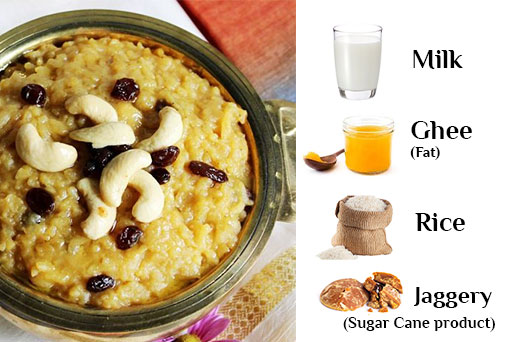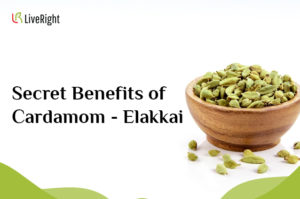Last updated on August 21, 2024 by Dr. Subashri Thanigaivel
We already know about four seasons: spring, summer, fall, and winter. But according to Ayurveda, there are six different seasons classified based on the sun’s position with respect to the earth.
The northward movement of the sun is called the “Adana Kala” or Uttarayana which includes the late winter (shishira), the spring (vasanta), and the summer (grishma) season. Whereas, the southward movement of the sun is called the “Visarga Kala” or dakshinayana which includes the rainy (varsha), the autumn (sharad), and the early winter (hemanta) season. These varying 6 seasons induce atmospheric changes which influence changes in the dosha (Vata, Pitta, Kapha), bala (strength), and agni (digestive fire).

So, following the same diet in all seasons affects an individual’s health. Modifying your diet according to the seasonal regimen can protect your body from any disorders that could affect you in the future.
Right now, we are experiencing the Shishira season (late winter) of Uttarayana or the Adana kala. Shishira and Hemanta show more or less similar characteristics. Except that in shishira, due to the onset of Adana Kala, added dryness with a cold climate is observed. During the early stage of winter – Hemanta, you would have experienced an increase in your appetite. Have you ever wondered why you were excessively hungry, craving for food, especially in winter?
The fact behind Winter Appetite
What comes to your mind when you read/hear the word “winter”?

As a fantasy, I imagine the white crystals from the movie “FROZEN” whenever I read or hear the word “winter”.
शीते शीतानिलस्पर्शसंरुद्धो बलिनां बली| पक्ता भवति हेमन्ते मात्राद्रव्यगुरुक्षमः||९||
Charaka Samhitha
But actually, winter is far more than that – cool weather, chill breeze, numb fingers, cold winds, dark and longer nights, etc. Every word directly or indirectly defines the cold climate of winter. When your body gets in contact with this cold climate it starts to preserve the heat (agni) inside your body to withstand the cold. As a result, the agni or the digestive power inside your body becomes stronger and more powerful to even digest heavy foods in huge quantities, making you feel hungrier than on other days.
Foods that can satisfy your Winter Cravings
Since there’s a significant increase in Agni, an adequate amount of food is essential for your body to stay healthy. If the right quality and quantity of food are not provided to your body, then the increased Agni will start consuming the intrinsic fluids (rasa) of your body, leading to aggravation of Vata. Moreover, Vata already has cold properties and starts to vitiate further in this cold climate.

“The climate out is cool, it’s snow time; let me have a chill beer/soda or an ice tea”
That kind of mindset can never do good to your body. Having unctuous (oily/greasy), warm, sour, and salty foods (rasam, foods prepared with ghee/oil, sour & salty soups, citrus fruits, cheese, pickles, tomatoes) with rich fatty meats and fermented beverages or honey during hemanta ritu (winter season) is suitable for your body.
In the shishira season (late winter), avoid (pepper, garlic, ginger, onion, bitter gourd, pomegranate, turnip, fenugreek, coffee, tea, etc.) intake of foods that are pungent, bitter, and astringent in taste, Vata vitiating (foods with cold properties), and light to digest.
Foods advisable to take during winter;
- Milk products
- Cane sugar products
- Fats and oils (for eg: meat, and ghee for fats)
- New/fresh rice
- Warm water for all purposes
गोरसानिक्षुविकृतीर्वसां तैलं नवौदनम्| हेमन्तेऽभ्यस्यतस्तोयमुष्णं चायुर्न हीयते||१३||
Charaka Samhitha
According to Ayurveda, a person who is habituated to following the above diet during hemanta ritu, never sees his lifespan decrease. It actually prevents early aging and diseases. That is why we start shishira with a great festival called “Pongal” and the dish prepared contains all the ingredients that are mentioned above.

Also, eating seasonal fruits and vegetables is a very good practice to follow.
Benefits of serving your stomach with warm foods During Winter
Feeding your body during this season with heavier foods which are sweet, sour, and salt predominant, added with good fats makes sure that the body sustains the cold temperature, and counteracts the aggravating Vata by maintaining a steady digestion process. Warm foods can help you even better in this process. They assist in efficient digestion and provide sufficient warmth to your body. Also, fresh and warm foods when swallowed gives a soft, hot, and warm feel to your sore throat.
Winter is not only about enjoying a cold climate with a hot glass of tea or coffee and pastries beside it. It’s a perfect time to rethink and shift your food habits (ahara) and lifestyle (vihara) according to the atmospheric changes happening around you. Awareness and knowledge is what empowers us to choose wisely. So, we urge you to make the right lifestyle choices to keep your dosha, bala, and agni balanced and continue a healthy lifestyle ahead.




